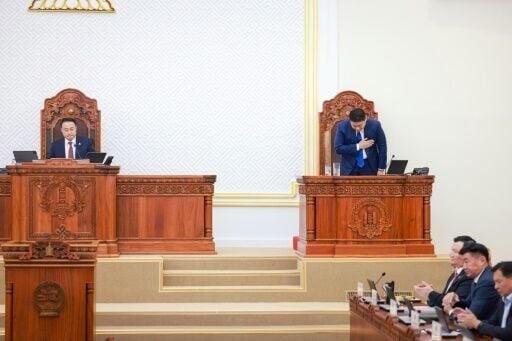Mongolia’s Prime Minister Luvsannamsrain Oyun-Erdene has resigned after enduring weeks of anti-corruption protests in the nation’s capital, signaling a significant shift in the country’s political landscape.
Mongolia PM resigns after anti-corruption protests

Key Takeaways:
- Prime Minister Oyun-Erdene Resigns: The leader of Mongolia stepped down from his position.
- Result of Anti-Corruption Protests: His resignation was a direct response to public demonstrations.
- Weeks of Public Unrest: The protests persisted for weeks, indicating deep-seated issues.
- Protests Centered in Capital: The nation’s capital was the focal point of the unrest.
- Significant Political Shift: The resignation may lead to notable changes in Mongolia’s political landscape.
Weeks of Protests Lead to Prime Minister’s Resignation
Mongolia’s political sphere witnessed a dramatic turn of events as Prime Minister Luvsannamsrain Oyun-Erdene announced his resignation on Tuesday. This decision comes after enduring weeks of relentless anti-corruption protests that swept through the nation’s capital. The sustained public outcry reflects growing frustration among citizens over allegations of corruption within the government.
Public Demand for Accountability
The capital became the epicenter of the protests, with citizens taking to the streets to demand greater transparency and accountability from their leaders. The demonstrations, which lasted for weeks, underscore the populace’s deep-seated concerns about corruption and governance. The intensity and duration of the protests highlight a significant disconnect between the government and the people it serves.
Impact on Mongolia’s Leadership
Prime Minister Oyun-Erdene’s resignation signifies a pivotal moment in Mongolia’s political history. The move illustrates the profound impact that sustained public pressure can have on leadership. It also raises questions about the stability of the current political environment and the potential for further governmental changes prompted by citizen activism.
Looking Ahead
The resignation opens the door to a period of uncertainty and potential transformation in Mongolia’s political landscape. As the nation grapples with the implications of this leadership change, attention turns to how the government will address the underlying issues that sparked the protests. The call for anti-corruption measures and transparent governance remains a critical demand from the public.
Conclusion
Mongolia stands at a crossroads following the resignation of its Prime Minister. The events underscore the power of collective action and the importance of addressing corruption to maintain public trust. The coming weeks will be crucial in determining the country’s direction and the government’s ability to respond effectively to its citizens’ concerns.











